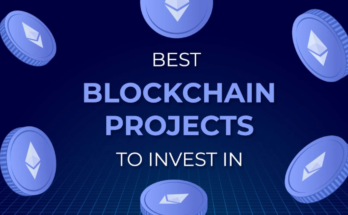The world of gaming has evolved significantly over the last decade, with one of the most groundbreaking shifts being the rise of play-to-earn (P2E) crypto games. These games merge traditional video gaming with blockchain technology, allowing players to earn real-world value from their in-game efforts. With the increasing adoption of cryptocurrencies and non-fungible tokens (NFTs), play-to-earn games have become a prominent trend within the digital economy.
In this article, we will explore what play-to-earn crypto games are, how they work, their advantages and challenges, and the top games currently dominating the space.
What Are Play-to-Earn Crypto Games?
Play-to-earn crypto games are blockchain-based games that allow players to earn cryptocurrency or digital assets by participating in gameplay activities. Unlike traditional video games, where in-game currency and rewards are confined within the game’s ecosystem, P2E games give players true ownership of assets through NFTs and enable them to trade, sell, or transfer their earnings on external platforms.
Players can earn rewards by:
- Completing quests or missions
- Winning battles or tournaments
- Trading NFTs like characters, skins, and items
- Staking tokens or participating in governance
How Do Play-to-Earn Games Work?
1. Blockchain Technology
P2E games are built on blockchain platforms such as Ethereum, Polygon, Binance Smart Chain, or Solana, which provide the decentralized infrastructure for recording ownership and transactions.
2. Cryptocurrency Integration
Each game typically has its own native token (e.g., AXS for Axie Infinity) that players can earn and use within the game or exchange for other cryptocurrencies or fiat money.
3. Non-Fungible Tokens (NFTs)
In-game assets like weapons, characters, and land are represented as NFTs. These unique tokens are stored on the blockchain and provide players with proof of ownership.
4. Game Mechanics
P2E games often adopt genres like RPGs, card games, strategy games, or simulations. Players interact with the game world, complete objectives, and earn rewards which can then be used or sold.
Benefits of Play-to-Earn Games
1. Monetization of Gameplay
Players can turn their gaming skills and time into a source of income. This model is particularly popular in regions with lower average incomes.
2. True Ownership of Assets
Gamers fully own their in-game items, meaning they can sell, trade, or keep them outside the game’s environment.
3. Community-Driven Development
Many P2E games allow players to vote on updates and governance proposals, creating a decentralized development process.
4. Economic Empowerment
In some cases, P2E games have become livelihood sources, especially in countries like the Philippines, Venezuela, and parts of Africa.
Challenges and Risks
1. Volatility of Crypto Markets
Since earnings are often in cryptocurrency, the value of rewards can fluctuate drastically, impacting player income.
2. High Entry Costs
Some games require players to buy expensive NFTs or tokens to get started, creating a barrier to entry.
3. Regulatory Uncertainty
Crypto gaming operates in a legal gray area in many countries, posing regulatory risks for both developers and players.
4. Sustainability of Game Economies
Many games face issues like inflationary tokenomics, where the in-game currency loses value due to oversupply.
5. Security Concerns
As with any blockchain-based system, smart contract vulnerabilities and hacks can result in significant asset losses.
Top Play-to-Earn Crypto Games (as of 2025)
1. Axie Infinity
- Blockchain: Ronin (Ethereum sidechain)
- Native Token: AXS & SLP
- Overview: Players collect, breed, and battle creatures called Axies. Despite facing a decline in user base in 2022, the game rebounded with updated mechanics and tokenomics.
2. The Sandbox
- Blockchain: Ethereum
- Native Token: SAND
- Overview: A virtual world where users can buy land, build experiences, and monetize their creations.
3. Gods Unchained
- Blockchain: Immutable X (Layer 2 on Ethereum)
- Native Token: GODS
- Overview: A free-to-play digital card game that rewards players for skill and strategy.
4. Illuvium
- Blockchain: Immutable X
- Native Token: ILV
- Overview: A AAA-quality auto-battler RPG game featuring open-world exploration and creature collection.
5. Star Atlas
- Blockchain: Solana
- Native Token: ATLAS & POLIS
- Overview: A space-themed strategy game with deep economic and political systems, including staking and land ownership.
6. Big Time
- Blockchain: Ethereum (with off-chain optimizations)
- Native Token: TIME
- Overview: An action RPG where players earn collectibles and NFTs while battling through timelines.
How to Get Started with Play-to-Earn Games
- Set Up a Crypto Wallet: Use wallets like MetaMask or Trust Wallet.
- Buy Crypto: Purchase Ethereum or other relevant tokens from exchanges like Binance or Coinbase.
- Choose a Game: Research entry requirements, gameplay, and community reputation.
- Acquire NFTs or Tokens: Depending on the game, you may need to buy NFTs or stake tokens.
- Start Playing and Earning: Join missions, battles, or economies to begin earning rewards.
The Future of Play-to-Earn Games
Play-to-earn games are shaping the future of work, entertainment, and digital ownership. As blockchain technology matures and user experiences improve, more mainstream gamers and developers will join the ecosystem. Moreover, the convergence of P2E with emerging trends like metaverse gaming, AI-driven economies, and cross-chain interoperability will further enhance its appeal.
Game studios, investors, and players alike are now reimagining what gaming can be—not just a source of fun, but also a path to financial empowerment.
Final Thoughts
Play-to-earn crypto games represent a significant evolution in both the gaming and blockchain industries. While the model comes with challenges, its potential to democratize income opportunities and reshape digital economies is immense. As technology, regulation, and adoption continue to evolve, P2E games are poised to become a cornerstone of the next-generation internet—Web3.




